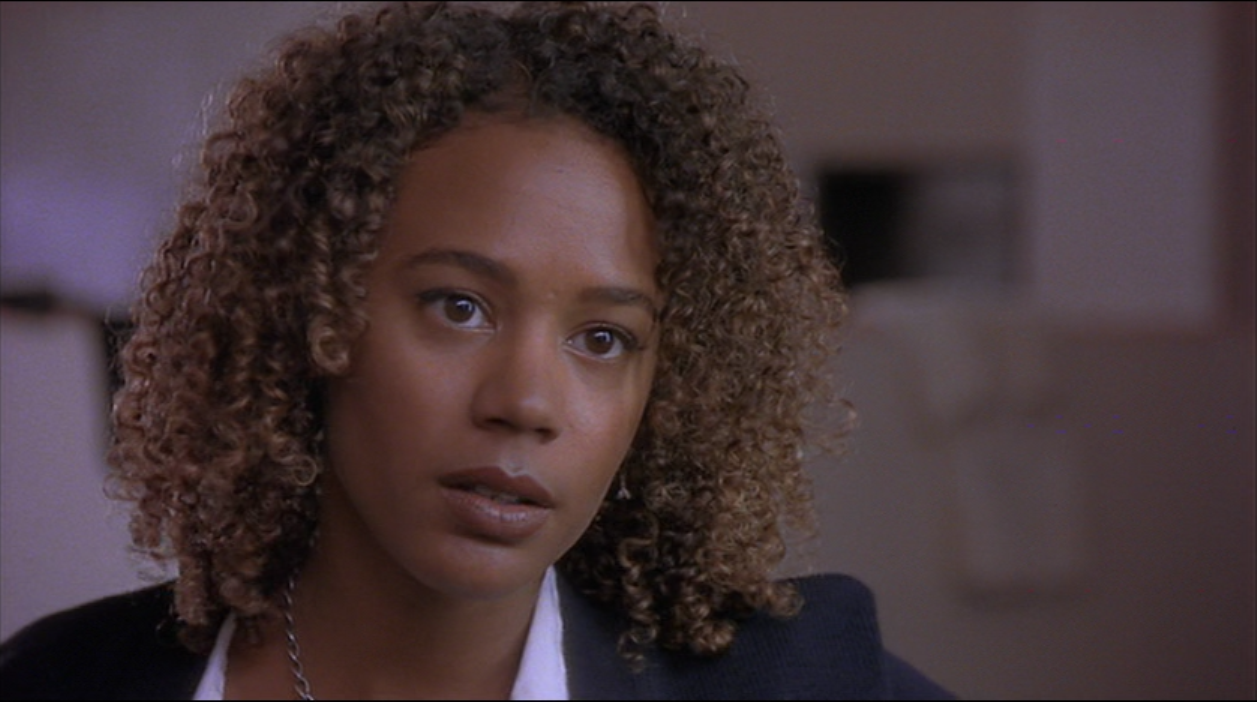Kieran, here. This past week, Andrew Fleming's 90s teen witchcraft flick The Craft celebrated its 20th anniversary. If you haven't already done so, do yourself a favor and check out the terrific piece over at Decider about the cult classic's enduring power, written by fellow Team Experience member Chris Feil.

One thing that I've always found interesting about the film, something that I've rarely seen discussed, is its handling of racial politics and how it stands out among other movies released around the same time. The dynamic of "the black friend" is one not entirely alien to teen films and television, especially in the 90s...
From Lisa Turtle on "Saved By the Bell" to Dionne Davenport in Clueless. Usually, these characters exist as sidekicks and other themes or the lightness of the vehicle overall prevent honest exploration of what it truly means to be "the black friend" in a largely white social circle.

Which is why I remember being struck silent as a kid, watching The Craft expecting to be entertained and possibly scared (I was a skittish kid) by a movie about teen witches to find an actual attempt at a school experience that mirrored my own. Like Rochelle (Rachel True), I too was one of only a few black kids at my Catholic school. It's a credit to the movie, racial politics aside, that each of the four witches are given clear arcs and storylines when (in terms of narrative functionality) the movie really just needed to drive towards the inevitable rivalry between Nancy (Fairuza Balk) and Sarah (Robin Tunney). Instead, we get sympathetic glimpses into Nancy's tumultuous trailer park home life, Bonnie (Neve Campbell) dealing with physical deformity in high school where any abnormality is zeroed in on and cruelly picked apart by peers and yes, Rochelle's experience being the only black girl at a Catholic high school in Los Angeles.
Without taking anything away from what the movie is "about" (aside: this always the argument used against non-white, non-heterosexual characterization--"the story isn't about that". More on this later) The Craft shrewdly portrays Rochelle's conflict with classmate and fellow swim team member, the openly racist Laura Lizzie (Christine Taylor). When Rochelle confronts her directly about why she's been singled out as the target of Laura's hatred, Laura bluntly replies:

"I don't like Negroids. Sorry."
Racism is usually given such a male face in fictional narratives. This storyline briefly touches upon the racialized violence white women often inflict on women of color. Given Rochelle's newfound power and agency through witchcraft with the addition of a fourth to complete the coven's circle, it's completely believable that she would use the occult against Laura Lizzie and make her blonde hair fall out. Call it schaudenfraude, call it nasty, call it whatever you like, but you'd be hard pressed to find anyone in Rochelle's situation--the lone black face in a sea of white, being hurtfully othered on a daily basis--who wouldn't at least be tempted to do the same thing.

The film doesn't cosign this behavior as the "right way" to handle someone like Laura Lizzie, but I've always appreciated how it acknowledges Rochelle's cursing of Laura as a likely outcome. So many films released at this time (and probably today as well) would have been just fine to make Rochelle black and leaving it at that, textually ignoring how her blackness informs her character and her interaction with this predominantly white environment. And The Craft manages to do this without taking away from what the film is really about--four outcasts in high school banding together and using witchcraft to reclaim their power.

Earlier this week, Nathaniel eloquently wrote about why we need to stop praising people, be they Marvel executives or J.K. Rowling for saying that they are unopposed to the idea of LGBT characters when they haven't actually included any textually in their narratives. The aforementioned argument against this--it takes away from what the narrative is actually about to include these characterizations--paints white, cisgender, heterosexual perspectives as the default, which is harmful and the root of erasure of all kinds. Non-white, non-male, non-heterosexual characters live the reality of their identity politics alongside a myriad of other stories every day. The same would be just as true if those people happened to be, oh...mutant superheroes, or Jedi Knights or students at a fantastical school for wizards and witches. The Craft is not a perfect film. A lot of the love I have for it is largely based in nostalgia, I will readily admit. But its willingness not just to include people of color but to explore the implications of what that means in a narrative that's not explicitly about race makes it feel revolutionary and it should serve as an example for how inclusiveness doesn't mean diluting your narrative. It may well enhance it.